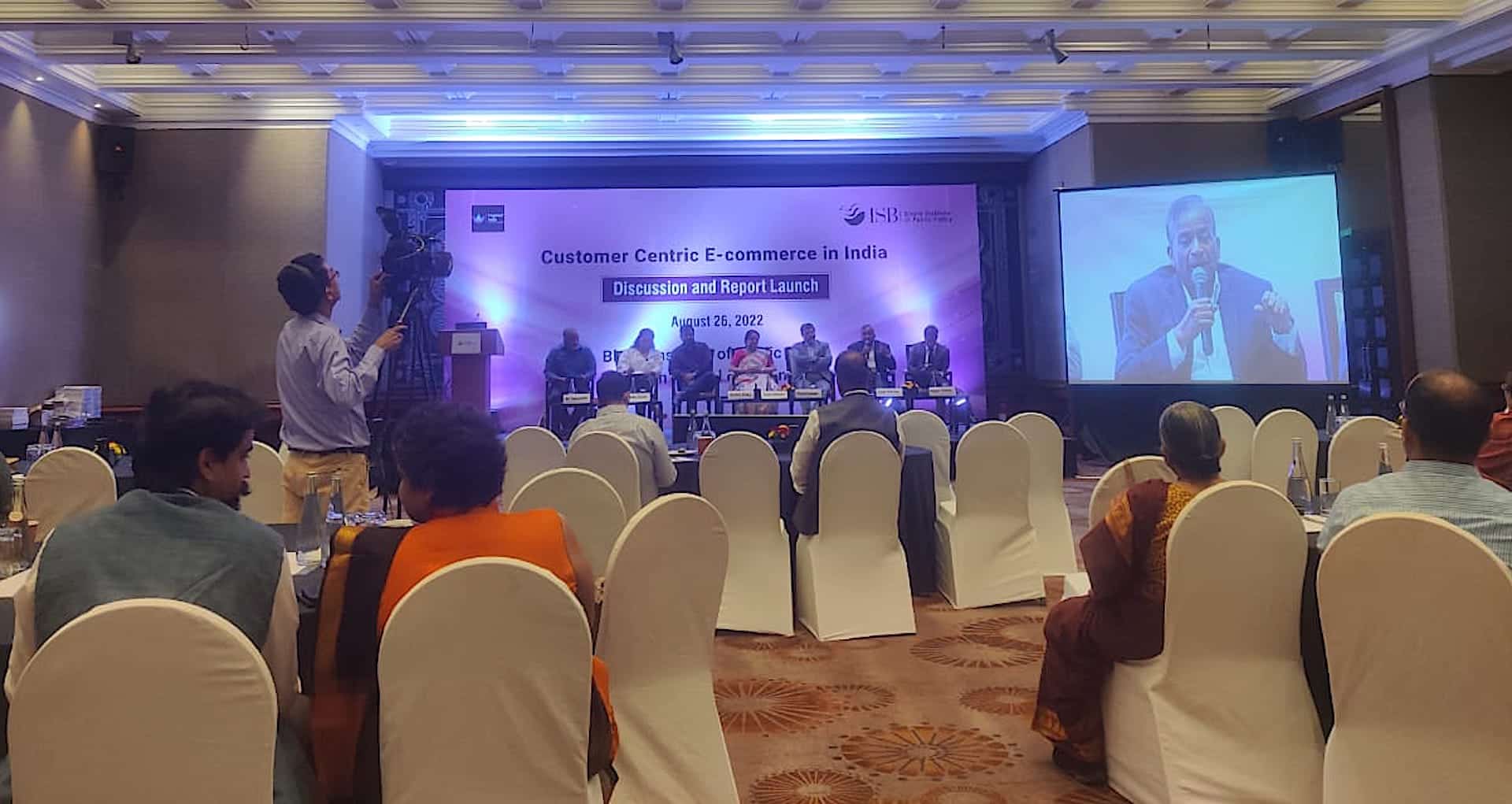Policy and Regulations
As ISB releases e-commerce report, top digital stakeholders discuss the sector’s future at meet
The Bharti Institute of Public Policy, Indian School of Business (ISB) on Friday, released a report on the growth of Customer-Centric E-commerce in India. The event was attended by government officials, bureaucrats, leading think tanks, entrepreneurs and Chairman of Bharti Enterprise, Rakesh Bharti Mittal.
Owing to factors such as economic growth, higher disposable incomes, internet penetration combined with great technological innovation and ease in commerce, Indian retail and e-commerce sectors have witnessed phenomenal growth, especially in the last two decades. Various aspects of technology which affect the lives of citizens including data privacy, emerging technology, open data access, ed-tech and climate technology have been the main subject of the institute’s studies. In 2021, the institute organized an annual conference on the theme, “Technology and Policy.”
The first panel was on ‘the E-commerce growth story of India’. In this session, the participants were Aruna Sharma, Former Secretary – GoI, Lloyd Mathias, Angel Investor and Former Marketing Head of PC section at HP Asia, Ashish Sikka from the Ecom Express, Rajat Yadav from Invest India, Sabina Diwan from Justjobs Network & CPR, Vinod Kumar from India SME Forum. It was moderated by Anil Padmanabhan, Former Managing Editor, Mint.
Aruna Sharma said the upcoming RBI tokenization would change e-commerce in a big way, but credited the surge in digital payment for having made the whole difference. “The rise in digital payment along with the pandemic accelerated the growth of e-commerce in India. There is absolutely no doubt about it,” said Sharma, a Former Secretary, Government of India.
“It was very importantly said in the introduction that it wasn’t only the GST and taxation that actually led to it. Four ministries had to come together to make e-commerce easy. It required help from IT, Commerce and Consumer Affairs too,” she added. Lloyd Mathias said the government policy should focus on creating a level-playing field between all the stakeholders. “It was the adoption of digital payments by the older demographics that led to its rapid growth in India,” said Mathias.
Ashish Sikka talked about the dramatic growth in the e-commerce sector and how it’s going to explode in the upcoming days riding on the growth in infrastructure in the country. “A lot has been said about the growth vectors that are going to come up in the next 4-5 years. I can’t imagine any other sector in the world set to grow as the e-commerce sector in India,” he said, while also praising the government’s effort to promote digital transactions.
Vinod Kumar talked about how the government policy could have been even better. “Many e-commerce businesses shut down in the first year because of lack of proper guidance. There was nobody to tell them about the competitive strategy and telling them what their rivals are doing and the inability to work on the packaging,” said Kumar.
The second session on ‘e-commerce policy landscape in India’ was attended by Rajat Kathuria from Shiv Nadar University & ICRIER, Anita Kapur, Ex-Chairman CBDT, Nirupama Soundarajan, Pahle India Foundation, Ashish Aggarwal from NASSCOM and Kazim Rizvi from The Dialogue. It was moderated by Avik Sarkar from the ISB faculty. Sarkar also presented the brief features of the report by ISB in an address.
The released report studied the E-commerce policy landscape in India by exploring the factors which drive customers to make purchases. This includes purchase decisions such as choice, convenience, price and quality. Desk research, followed by roundtable discussions with experts, government officials, sellers and E-commerce companies were conducted to form the report.
The report talks about four broad topics in E-commerce: foreign direct investment, business models, data & search and taxation. By analysing the current policies in the e-commerce sector, the report offers recommendations to improve the said policies.
The policy decisions that were recommended in the program included simplification and clarity in making policies, creating parity between online and offline companies, capacity building of smaller retailers and creation of an apex body to monitor E-commerce advertisements and promotions. An important suggestion was also to promote rural E-commerce through collaboration with them to generate rural jobs.
In terms of commerce beyond borders, the report says that the government must develop platforms for Indian MSMEs (Medium, Small and Micro Enterprises) to connect with the global market. In terms of transparency on E-commerce platforms, the report recommends that sponsored products should be displayed in a separate panel on the search page and should not be mixed with the organic search results to increase customer awareness.
Double taxation for E-commerce companies, according to the report, should be avoided. GST, the report says, should be based on the size of the business instead of the mode of business. GST should be implemented with the annual turnover threshold value so that small firms too can avail the benefit of e-commerce operators, the report says.
After a discussion on the report, the Keynote Address & Report Launch was attended by Aarushi Jain from Bharti Institute of Public Policy, K Giri from Empower India, and Arvind Gupta from Digital India Foundation who gave a presentation on the upcoming system for e-commerce, Open Network For Digital Commerce (ONDC). The closing keynote address was given by Rakesh Mittal, Vice-Chairman of the Bharti Enterprise.










































